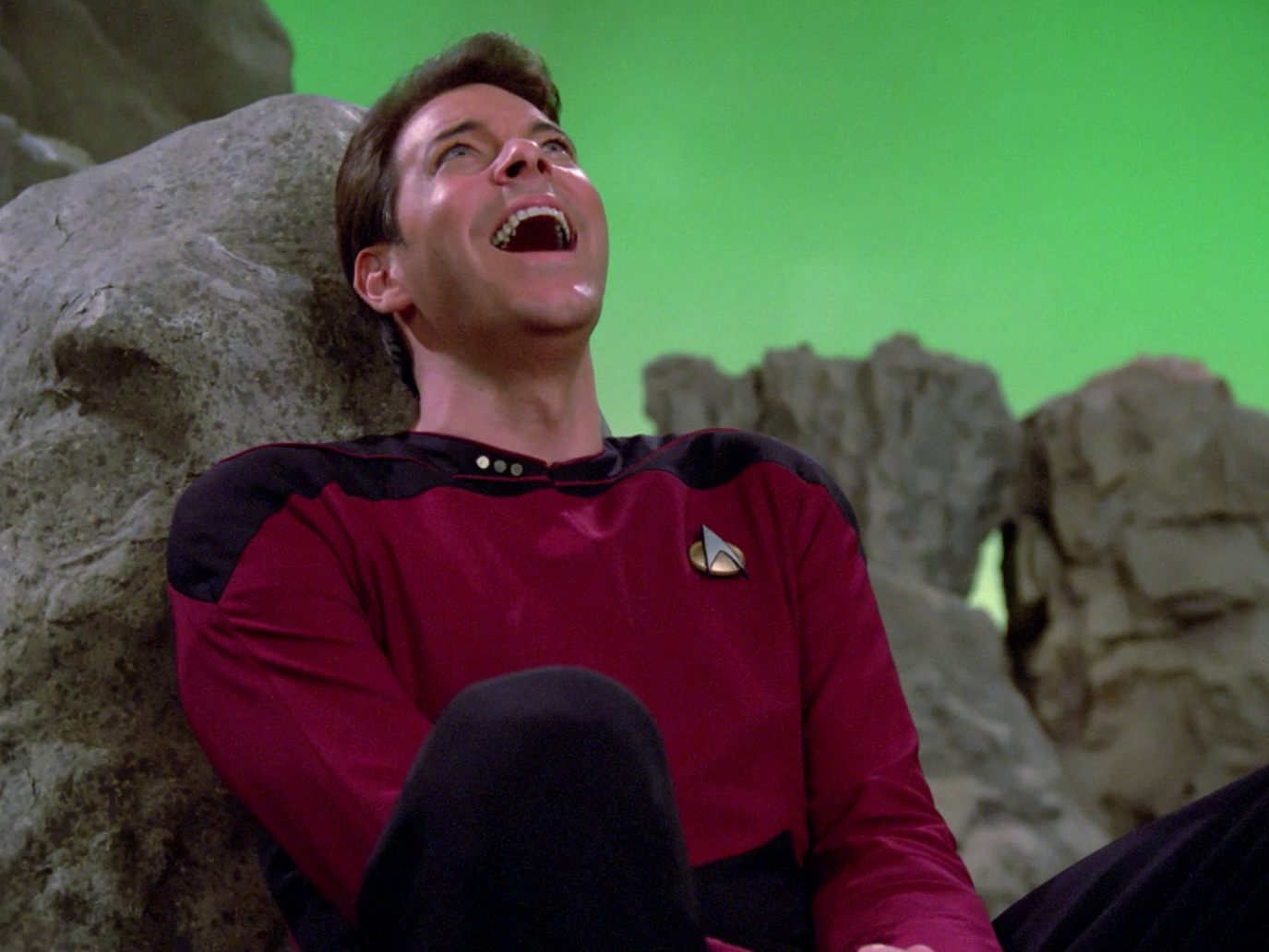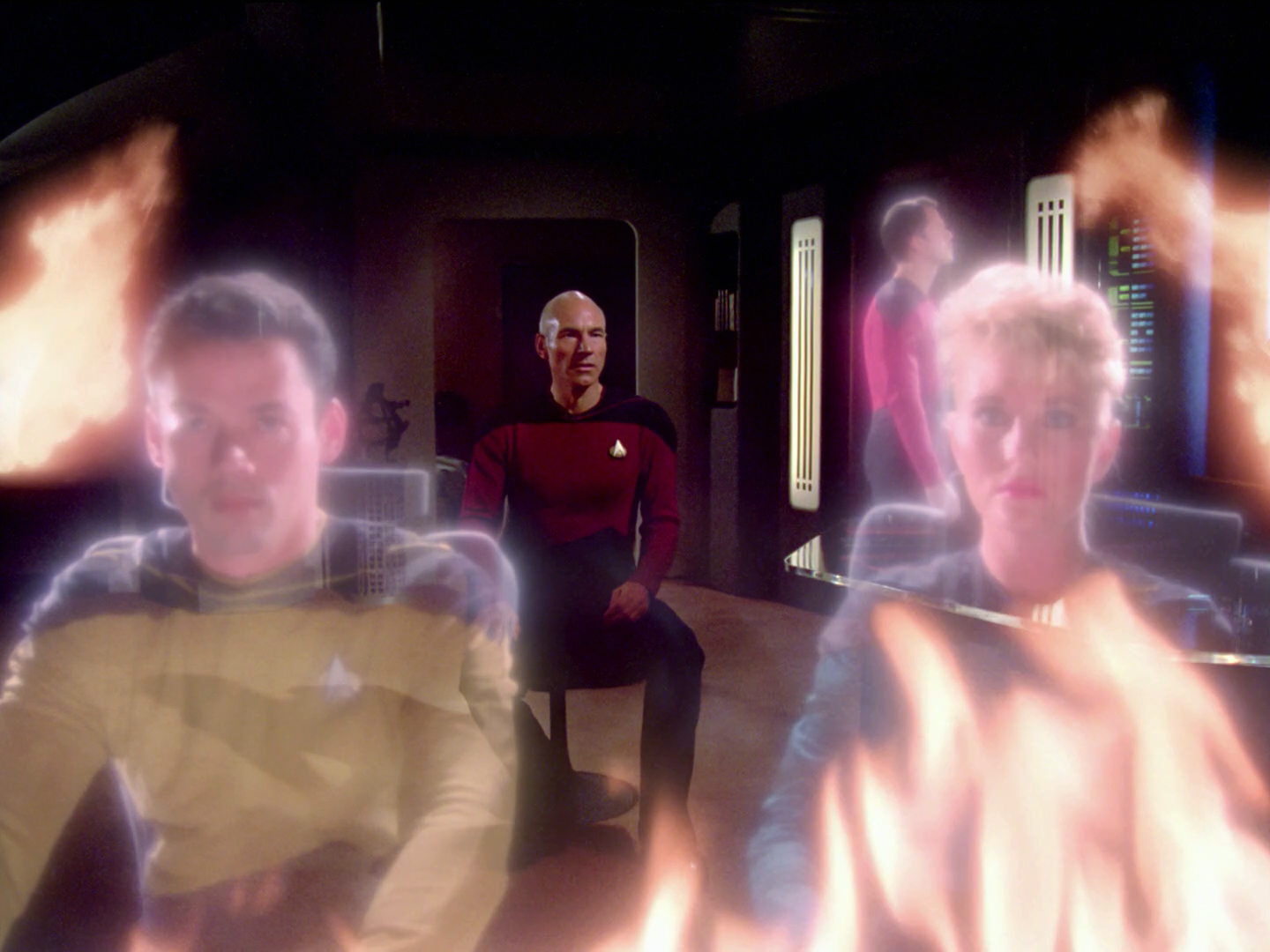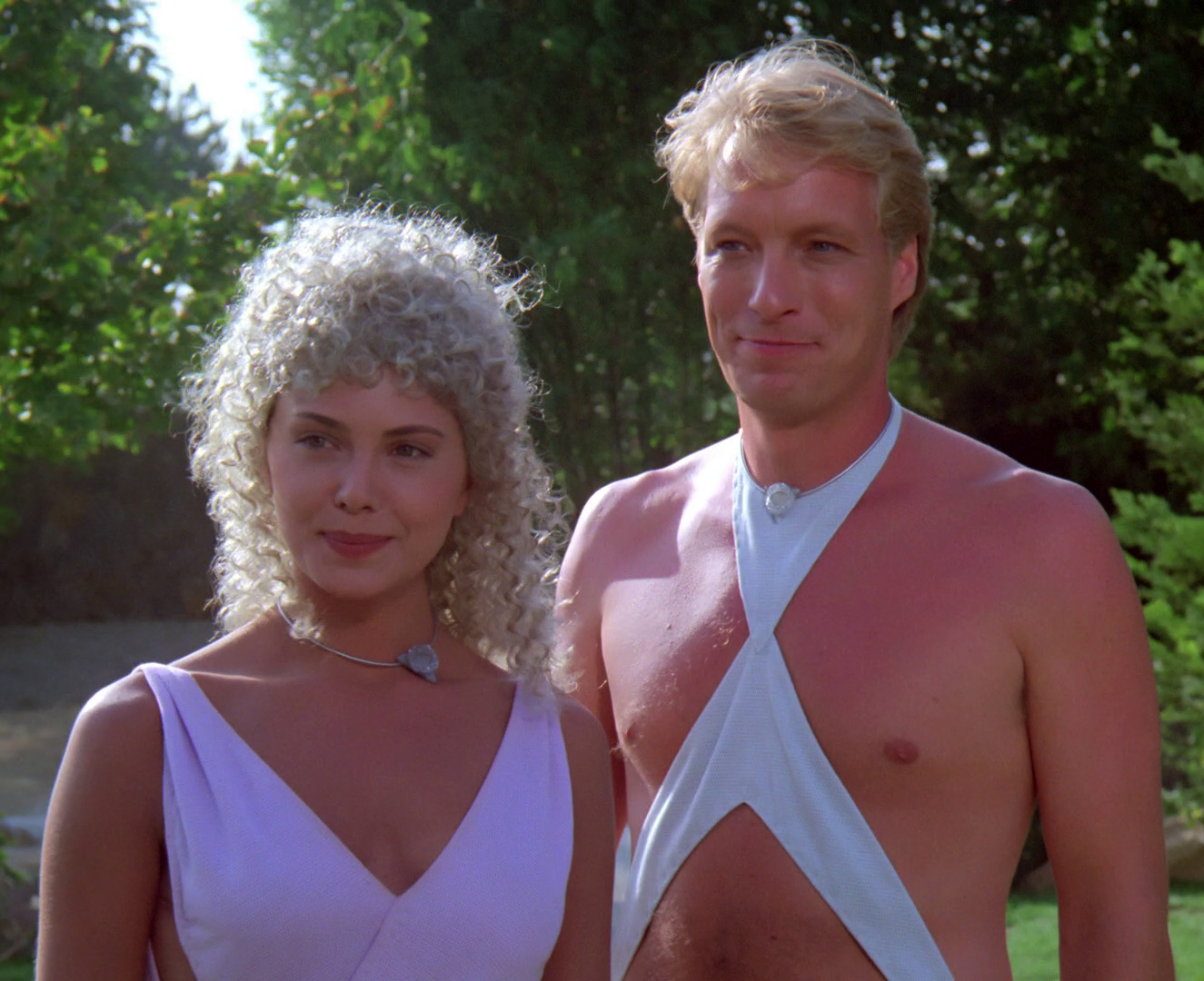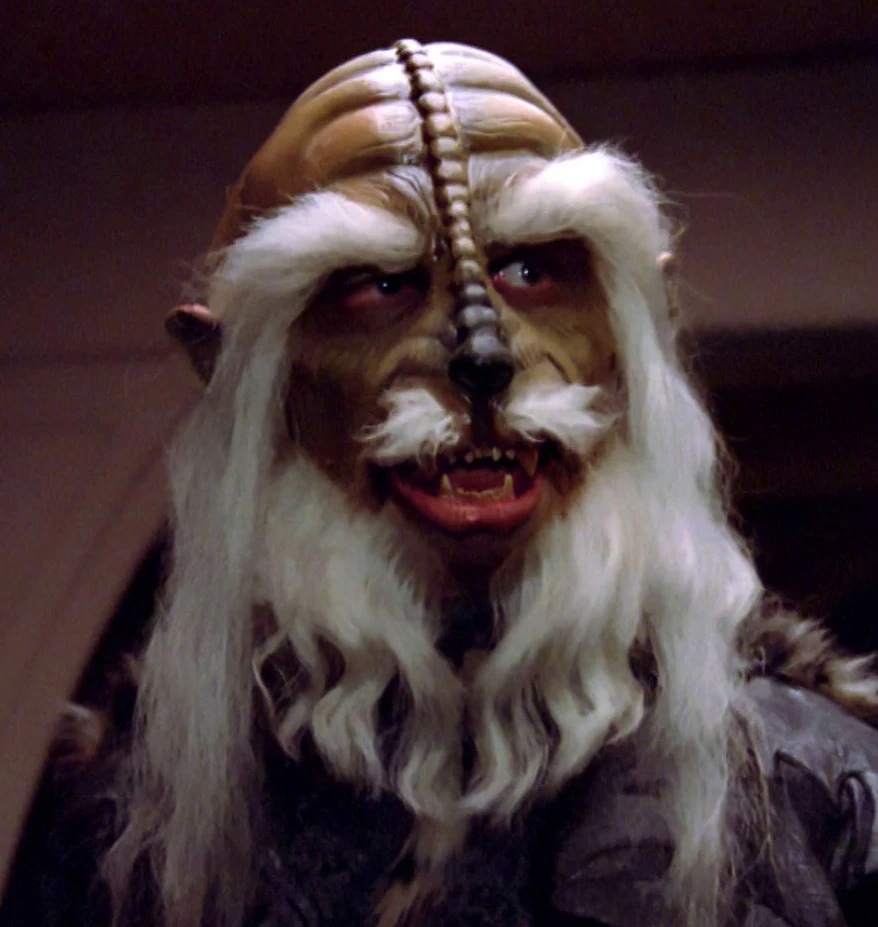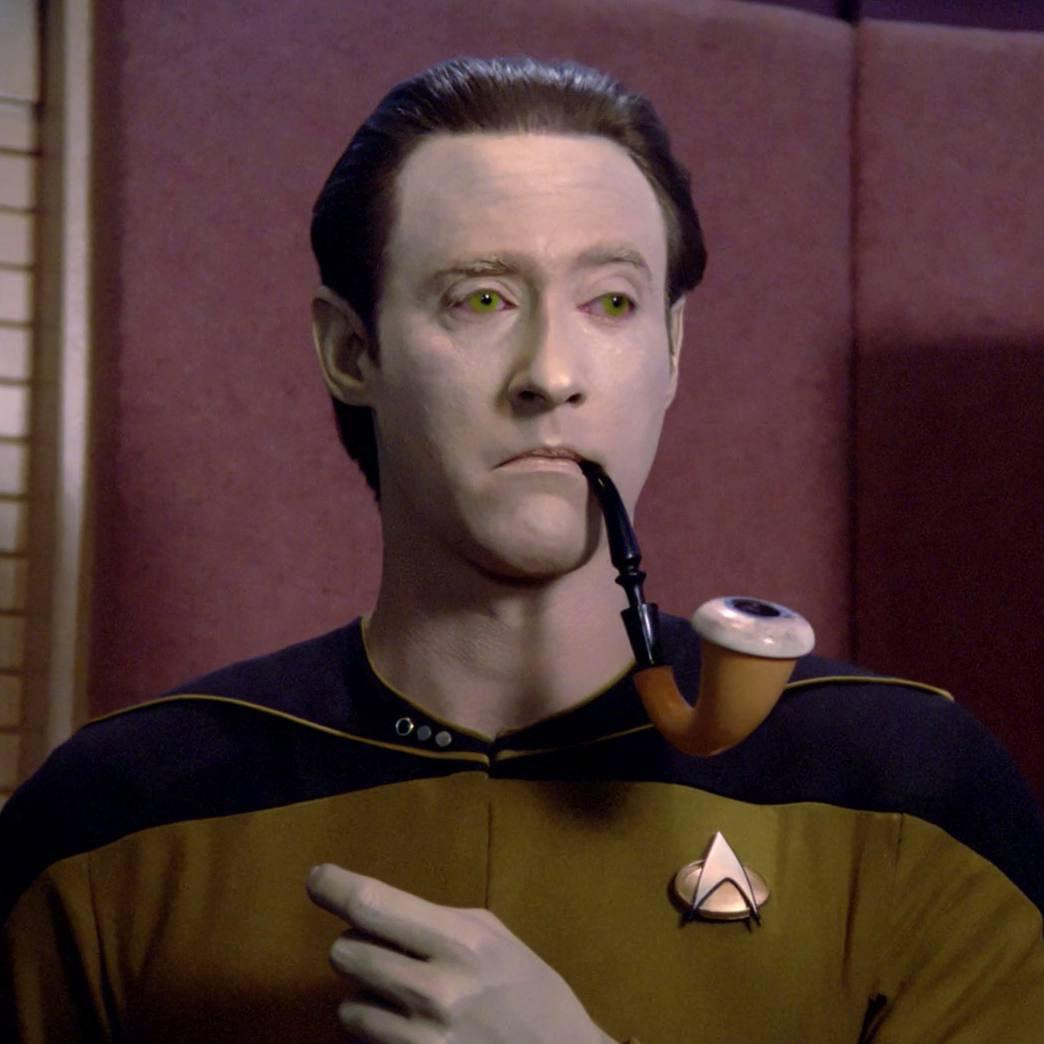Series: Star Trek: The Next Generation
Season 1, Episode 11
Original Air Date: November 30, 1987
Surprise! Deanna Troi is to be married. Her mother, her betrothed and her future in-laws come aboard the Enterprise for the festivities. None of her colleagues had any idea this arranged marriage was coming and it's instantly clear she's long been dreading it herself. Good half-Betazoid that she is, Deanna expresses willingness to set aside her own career to meet the obligation. It helps that Wyatt, her intended, is awfully dreamy. Unfortunately, he's in love with some girl out of a cheesy music video.
"Haven" gets mixed reviews but it is important long-term for several reasons:
Robert Knepper (Wyatt) was born July 8, 1959 in Fremont, Ohio. He went to Northwestern for college but dropped out to pursue a full-time acting career in New York. While he does have some film credits, most of his high-profile work has been on television, especially the role of T-Bag on Prison Break.
Full disclosure... in 2017, five different women came forward with allegations of sexual assault against Knepper. The incidents cited spanned several decades. Knepper denied the accusations and nothing has been proven. I am not going to imply judgment one way or another. However, this is a reflection of an important reality for TNG, especially as we get towards the end of Season 1: television is a very tough industry for women. It was in the late '80s and it still is. Maybe the #MeToo movement has improved the situation or at least brought more awareness. Regardless, there have long been men willing to take advantage of a perceived difference in status for their own sexual gain. It's disgusting and it's real. There are other ways women are marginalized, of course. Sexual assault is one of the uglier means.
Original Air Date: November 30, 1987
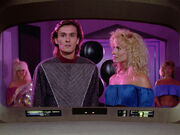 |
| via Memory Alpha |
Surprise! Deanna Troi is to be married. Her mother, her betrothed and her future in-laws come aboard the Enterprise for the festivities. None of her colleagues had any idea this arranged marriage was coming and it's instantly clear she's long been dreading it herself. Good half-Betazoid that she is, Deanna expresses willingness to set aside her own career to meet the obligation. It helps that Wyatt, her intended, is awfully dreamy. Unfortunately, he's in love with some girl out of a cheesy music video.
"Haven" gets mixed reviews but it is important long-term for several reasons:
- It's a good development episode for Deanna. For the first time, we get to meet one of the TNG principals' families. The only family we met with the originals was Spock's and that didn't happen until Season 2. We learn of her difficult relationship with her mother and her personal dilemma of meeting the contradictory expectations of her chosen career and her culture - not a sci-fi contrivance. Real people, especially women, face that dilemma every day.
- The introduction of an important recurring character: Lwaxana Troi, Deanna's eccentric and overbearing mother. Lwaxana is performed by our old friend, Majel Barrett, wife of Gene Roddenberry and a Star Trek veteran from the very beginning (see here). Also introduced is her attendant, the enormous and mostly silent Mr. Homn (Carel Struycken). As with Q, I find Lwaxana annoying - too much like people I've actually known. But just as with Q, life is never dull when she's around.
- Development of the Troi-Riker relationship, to this point the closest thing to genuine office romance among the TNG principals (the Tasha-Data tryst clearly a one-off). We know from the first episode that there's a history but details are scarce. They still are but we see the emotional landscape, ultimately more important. There was sex. There are genuine feelings still, likely stronger on his side than hers. There was a career/relationship choice for him, too, once upon a time and he chose the job. Being just friends is a challenge - again more for him than for her. Long-term, it's admirable that they're able to set it all aside in their working relationship.
Acting Notes
Robert Knepper (Wyatt) was born July 8, 1959 in Fremont, Ohio. He went to Northwestern for college but dropped out to pursue a full-time acting career in New York. While he does have some film credits, most of his high-profile work has been on television, especially the role of T-Bag on Prison Break.
 |
| via Wikipedia |
Full disclosure... in 2017, five different women came forward with allegations of sexual assault against Knepper. The incidents cited spanned several decades. Knepper denied the accusations and nothing has been proven. I am not going to imply judgment one way or another. However, this is a reflection of an important reality for TNG, especially as we get towards the end of Season 1: television is a very tough industry for women. It was in the late '80s and it still is. Maybe the #MeToo movement has improved the situation or at least brought more awareness. Regardless, there have long been men willing to take advantage of a perceived difference in status for their own sexual gain. It's disgusting and it's real. There are other ways women are marginalized, of course. Sexual assault is one of the uglier means.



